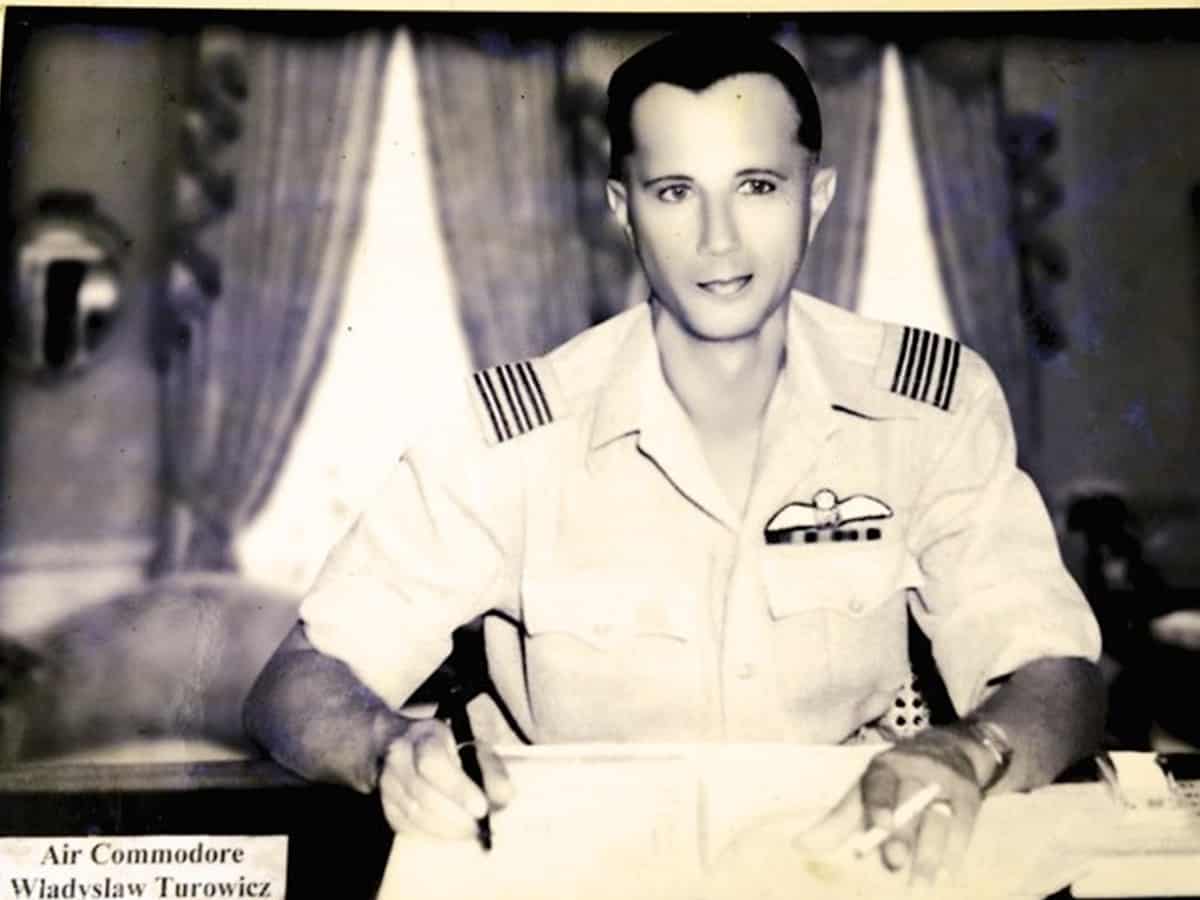
At a time when Russia, Ukraine and Poland are in the news, it may interest many to know about a man from Poland who is largely unknown and forgotten but who played a major role in shaping Pakistan’s Air Force soon after the nation became an independent entity. His name was Wladyslaw Turowicz and he eventually rose to become an Air Commodore in the Pakistan Air Force.
Turowicz was the administrator of Pakistan’s Space and Upper Atmosphere Research Commission (SUPARCO) for three years starting from 1967. He was one among the forty-five Polish air force officers who joined the Royal Pakistan Air Force on a contract in the 1950s. But after completing the initial period of his contract, Turowicz decided to continue to live in Pakistan and he also continued to serve in the Pakistan Air Force and then the SUPARCO.
Turowicz was born to an aristocratic family in the village of Wadziejewsko in Siberia in Russia in 1908. The Polish name of the village which lies in the middle of Russia is probably due to the fact that it may have been inhabited by people from Poland who were exiled by the Tsar of Russia in the 1800s. Otherwise, it was highly unusual that a well-bred and aristocratic Polish family would be living in the harsh wilderness of Siberia.
From an early age, Turowicz was fascinated by aviation technology and his hobby was to collect different models of aircraft. Later he managed to obtain permission to study in Warsaw in Poland where he joined the Warsaw University of Technology (WUT). It was then regarded as one of the top institutes in the country. After graduation, he studied further in aviation technology and obtained a PhD in 1936.
It was while he was at the WUT, that Turowicz joined and became a pioneering member of the Polish Aero Club and was fortunate to come into contact with the topmost engineers in aerospace engineering. Furthermore, it was here that he met a fellow student named Zofia who later became his wife. The couple was blessed with four children
When the Second World War began, Turowicz joined the Polish Air Force and served as a fighter pilot and aeronautical engineer. Soon he was drafted into the Royal Air Force as a reserve pilot. It was from this stage that his life took an unusual turn.
He was sent to Great Britain where he flew different types of aircraft and became an expert at handling a variety of aeroplanes. Later, he was transferred to the Royal Air Force Aeronautics division where he served as Technical Inspector and was put in charge of aircraft electrical and system information, organising, testing, and evaluating aircraft.
After World War II ended, Turowicz was faced with a dilemma. He did not want to return to the new communist Poland. He realised that the new government would view him with suspicion since he had served with the Allied Forces during the war. As the political situation in Poland worsened, a group of Polish Air Force officers moved away to the USA and Australia. Turowicz and 45 of his colleagues opted to move to Pakistan in 1948 on a three-year contract.
Thereafter, Turowicz set up technical institutes in Karachi. He revitalised the Pakistan Air Force Academy, where he worked as a chief scientist. In 1952, Turowicz was promoted to the rank of wing commander and in 1959 he was promoted to the rank of Group Captain in the Pakistan Air Force. In 1960, he became an Air Commodore and an assistant Chief of Air Staff, in charge of PAF’s Maintenance Branch. In 1966 the Government of Pakistan transferred him to Pakistan’s national space agency named SUPARCO.
His outstanding success also led to envy and jealousy. There were whispers that he was a foreign spy. According to an article in The Dawn, there had been covert attempts to recruit him as a spy and many allegations were circulated by those who were against him. But no charges could ever be proved and apparently, he remained loyal. In 2008 a documentary was made about him in which Group Captain S. Ahtesham A. Naqvi of the PAF says that he recalls the Polish flying instructors. “They came to us when we were abandoned by everyone else. We are grateful to them.”
Meanwhile, the Turowicz family had also moved to Karachi where two of his children were born. His wife Zofia who had also studied at the Warsaw University of Technology took up the job of teaching the technique of flying gliders to the Shaheen Air Cadets in Karachi and Rawalpindi. Later two of their daughters married Pakistanis while the third daughter married a Bangladeshi.
But in 1980 tragedy struck the family. During a road journey, Air Commodore Turowicz was involved in a car accident. He and his driver were severely injured. Although they were immediately rushed to the military hospital, Turowicz was pronounced dead.
He was then buried in the Christian Cemetery in Karachi with full military honours. Top officials of Pakistan and Poland including the Consul-General of Poland in Karachi attended his funeral. It was a day of national mourning. The Government of Pakistan issued a condolence letter to his family mentioning his outstanding services to the nation as an Air Force Officer and a scientist. In his career, he had received several honours including the Sitara-e-Pakistan, Tamgha-e-Pakistan, Sitara-e-Khidmat, Sitara-e-Imtiaz and the Abdus Salam Award in Aeronautical Engineering.
His wife too received Pakistani honours. For her teaching of applied mathematics and particle physics at Karachi University, she was highly respected. She was honoured with the Sitara-E-Imtiaz by the Govt of Pakistan. Two of their children also went on to become leading scientists in Pakistan.
The unusual story of this air force officer from Poland who went on to become an important figure in Pakistan shows that regardless of whatever plans and ideas humans may have in their minds, ultimately it is the Almighty who fashions human lives and they can only follow that path that has been outlined for them.

